Percutaneous Balloon Valvuloplasty for Tricuspid Valve Stenosis treatment abroad
Treatment prices are regulated by national law of the corresponding countries, but can also include additional hospital coefficients. In order to receive the individual cost calculation, please send us the request and medical records.
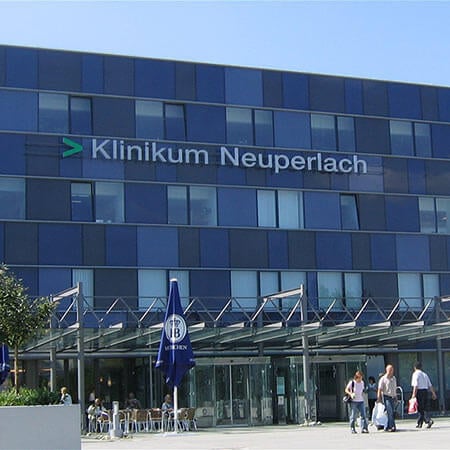
Department of Cardiology and Pulmonology
The Department of Cardiology and Pulmonology provides the full range of diagnostic and therapeutic services for patients with diseases of the cardiovascular system and lungs. In the field of cardiology, key attention is paid to the treatment of valvular heart disease, arrhythmias, heart failure, coronary artery disease, arterial hypertension and aortic diseases. The department's pulmonologists mostly deal with the treatment of pneumonia, bronchial asthma and chronic obstructive pulmonary disease. In addition, the department operates an Intensive Care Unit, within which patients can receive artificial ventilation, renal replacement therapy and procedures for maintenance of blood flow. The department's Chest Pain Unit is certified by the German Cardiac Society and provides medical care to patients with acute coronary syndrome. The department successfully uses in its clinical practice both proven classical treatments and innovative medical achievements, which are available only in leading European hospitals. The department's medical team provides treatment to more than 3,200 patients every year.


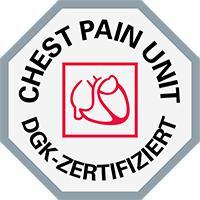
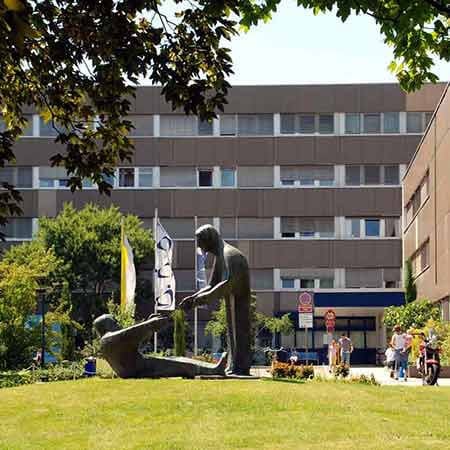
Department of Cardiology and Angiology
The Department of Cardiology and Angiology offers the full range of medical services in the fields of its competence. The department's doctors specialize in the treatment of congenital and acquired heart defects. The key focus is on catheter-based heart interventions, which are characterized by a minimal trauma rate and allow patients to avoid an open operation. For this purpose, the department has three modern Cardiac Catheterization Laboratories. The department also houses an Intensive Care Unit and a Chest Pain Unit for patients with acute coronary syndrome. The medical facility has 82 beds. The department was awarded the prestigious quality certificate from the German Cardiac Society (DGK) for outstanding results in the treatment of mitral valve diseases and acute coronary syndrome. Another important area of work of the department's physicians is comprehensive heart examinations for the prevention of heart disease. For this purpose, specialized Check Up Programs have been developed here, which include an optimal set of diagnostic tests. The medical facility employs a highly professional team of doctors and nursing staff, which makes every effort to provide each patient with effective medical care in a pleasant and comfortable atmosphere.
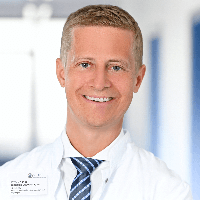

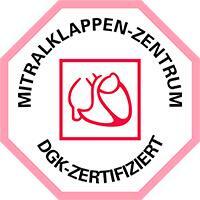
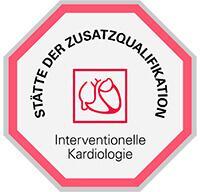


Department of Cardiology and Angiology
The Department of Cardiology and Angiology offers the full range of medical services in the areas of its specialization. The medical facility holds consultations and carries out the diagnostics and treatment of diseases of the heart and blood vessels. The department's team of cardiologists focuses on patients with valvular heart disease, heart rhythm disturbances, coronary artery disease, heart failure, and congenital heart disease. The department has a Chest Pain Unit certified by the German Cardiac Society (DGK) for the treatment of acute coronary syndrome. In the field of angiology, of key interest is the treatment of peripheral arterial occlusive disease, vascular stenosis of various locations, including carotid artery stenosis, and deep vein thrombosis. During the treatment of diseases of the heart and blood vessels, the department’s specialists use various drug therapy regimens and perform image-guided interventional procedures. The medical facility has been recognized with quality certificates for transcatheter aortic valve implantation (TAVI) and treatment of heart failure and mitral valve disease. Patients are treated by highly qualified physicians who strive to restore the patient's health using sparing treatment methods.
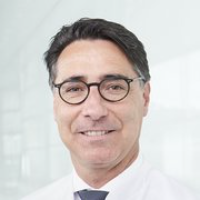






Department of Cardiology and Angiology
According to the Focus magazine, the Department of Cardiology and Angiology ranks among the top German medical facilities specializing in the treatment of cardiovascular diseases! The department offers the full range of medical services for the diagnostics and treatment of cardiovascular diseases. The department conducts all diagnostic and therapeutic procedures within the Cardiac Catheterization Laboratory, functional diagnostics of the heart, diagnostics and treatment of cardiac arrhythmias. The department's angiologists carry out complex diagnostics using ultrasound examination and angiography, as well as the treatment of stenoses and vascular obstructions by means of balloon dilatation, stent implantation and lysis.
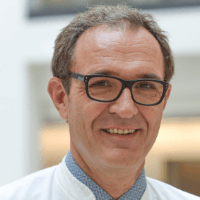






Department of Cardiology, Angiology and Pulmonology
According to the Focus magazine, the Department of Cardiology, Angiology and Pulmonology is included in the ranking of the best German departments specializing in the treatment of cardiovascular diseases! The department offers the accurate diagnostics and effective treatment of diseases of the heart, blood vessels, lung and respiratory tract. The department has 132 beds. A large team of more than 500 employees takes care of the patients’ health. All of them have excellent qualifications and make every effort to provide first-class treatment to each patient.
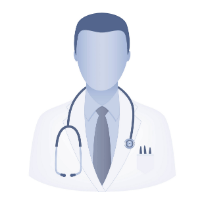





Department of Cardiology and Angiology
According to the prestigious Focus magazine, the Department of Cardiology and Angiology ranks among the top German medical facilities specializing in the treatment of heart diseases! The department offers the full range of modern diagnostic and conservative therapeutic techniques for patients with cardiovascular diseases. The department houses a General Cardiology Outpatient Clinic, high-tech Cardiac Catheterization Laboratory and Emergency Cardiac Care Unit. The medical facility is also certified as an Interdisciplinary Center for Heart Failure and a Center for Transcatheter Aortic Valve Implantation. All this creates excellent conditions for the provision of highly professional and effective medical care.
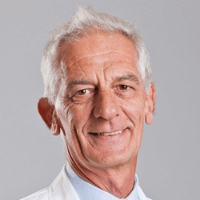




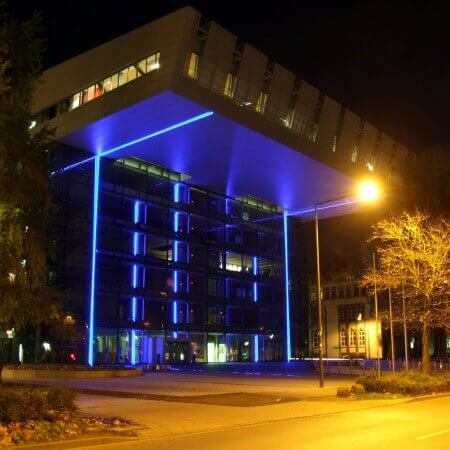
Department of Cardiology, Pulmonology and Angiology
According to the Focus magazine, the Department of Cardiology, Pulmonology and Angiology ranks among the top German medical facilities specializing in the treatment of cardiovascular diseases! The department offers all the modern medical options for the diagnostics and treatment of diseases of the cardiovascular system and lungs. The department's doctors have extensive experience and expert knowledge for the provision of competent medical care to patients with coronary heart disease, heart failure, arrhythmias, heart valve defects, cardiomyopathies, as well as hypertension. All the advanced diagnostic methods are available in the department. Special attention is paid to interventional therapy of various cardiovascular pathologies.







Department of Cardiology, Angiology, Pulmonology and Intensive Care
According to the Focus magazine, the Department of Cardiology, Angiology, Pulmonology and Intensive Care ranks among the top German medical facilities of this kind! The department offers the full range of diagnostic and therapeutic services in these fields. The main areas of specialization include interventional cardiac catheterization, including stent implantation, treatment of myocardial infarction, structural heart diseases, interventional therapy of heart valve (for example, TAVI and MitraClip techniques), electrophysiological examinations, ablation procedures, implantation of pacemakers and defibrillators, as well as diagnostic and interventional angiology, highly specialized treatment of lung diseases. The emergency cardiac care is provided in the department around the clock. The department operates in accordance with the very latest medical standards and has DIN EN ISO 9001 certification.
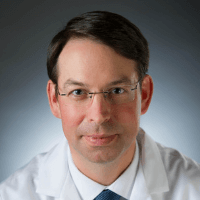




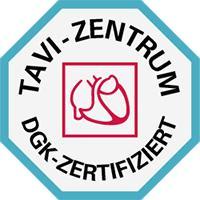

Department of Cardiology, Pulmonology and Angiology
According to the Focus magazine, the Department of Cardiology, Pulmonology and Angiology ranks among the top German departments specializing in cardiovascular diseases! It provides an accurate diagnostics and effective treatment of all diseases of the cardiovascular system, lungs, and respiratory tract. The highly qualified world-class specialists work with patients. Various functional and imaging examination techniques are available for the accurate diagnostics. Also, the department has state-of-the-art Cardiac Catheterization Laboratory.
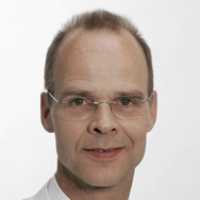






University Hospital of Ludwig Maximilian University of Munich
Department of Cardiology
The Department of Cardiology offers the full range of diagnostic and therapeutic services for patients with cardiovascular diseases. The department specializes in drug therapy and modern interventional cardiac catheter-based procedures. Patients with heart failure, myocardial infarction, heart valve pathologies, and arrhythmias are regularly admitted to the medical facility. The department's medical team has more than 300 employees, for whom it is important that each patient receives the most effective treatment in comfortable conditions. The department has 144 beds. Cardiologists admit about 7,500 inpatients annually. More than 20,000 patients receive medical care on an outpatient basis. The department is rightly proud of the numerous certificates of the German Cardiac Society (DGK) in treating acute coronary syndrome, heart failure, and atrial fibrillation, as well as transcatheter aortic valve implantation (TAVI) and the MitraClip procedure.
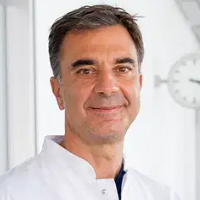





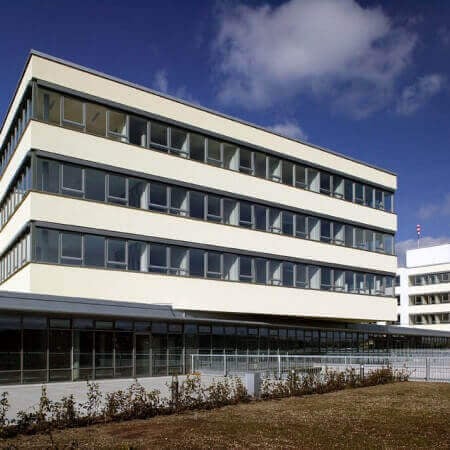
Department of Cardiology, Endocrinology, Nephrology and Pulmonology
The Department of Cardiology, Endocrinology, Nephrology and Pulmonology offers the full range of diagnostics and treatment of all diseases of the heart and blood vessels, pathologies of the endocrine organs, including diabetes mellitus, as well as diseases of the kidneys, lungs and respiratory tract. The department has in its arsenal an advanced medical infrastructure, which allows to provide the high-precision diagnostics and the most effective treatment of even the most complex clinical cases. At the center of all efforts of the department’s medical team is the patient, his health and a positive emotional mood for a favorable therapy outcome.







Department of Cardiology and Angiology
According to the Focus magazine, the Department of Cardiology and Angiology ranks among the top German medical facilities specializing in the treatment of cardiovascular diseases! The department offers the full range of modern diagnostic and therapeutic services to patients suffering from heart disease, as well as lesions of the peripheral arteries and veins. The department's doctors have at their disposal excellent technical resources and many innovative techniques for the treatment of arrhythmias, heart failure and catheter-based treatment of coronary stenosis, heart valve defects, congenital heart defects in adults and other heart pathologies. The department's specialists can also boast of their exceptional experience in cardiac imaging tests. The department's unique offer is sports cardiology. The experts in this medical field carry out a set of tests to determine the maximum possible physical activity in patients with cardiovascular diseases. In addition, doctors specializing in sports cardiology carry out preventive examinations in healthy people. In this case, the purpose of the examination is to assess the risks of developing cardiovascular pathology with a particular physical activity.
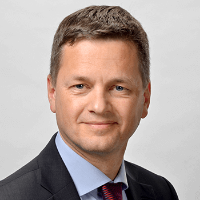



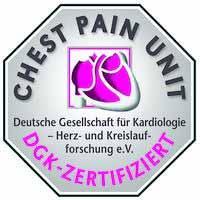
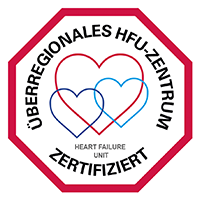
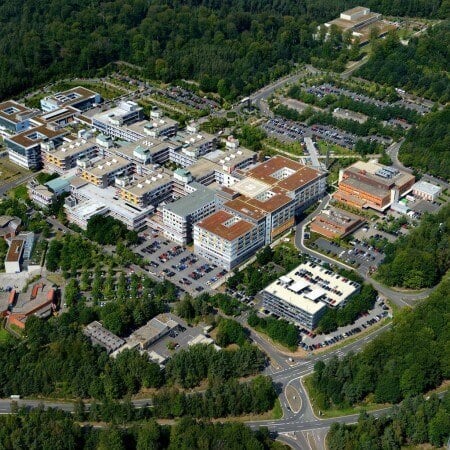
Department of Cardiology, Angiology and Internal Intensive Care
According to the prestigious Focus magazine, the Department of Cardiology, Angiology and Internal Intensive Care ranks among the top medical facilities in Germany specializing in the treatment of heart diseases! The department offers the full range of modern non-invasive and invasive studies, as well as all interventional procedures and supportive care. Clinical practice includes intensive care for emergency cardiac conditions, modern computer catheter procedures for arrhythmias, implantation of pacemakers, defibrillators and devices for resynchronizing cardiac therapy. The department’s specialists also have excellent qualifications in the treatment of coronary artery stenosis. Particular attention is paid to the catheter-assisted therapy for heart valve diseases.




Department of Cardiology, Angiology and Pulmonology
The Department of Cardiology, Angiology and Pulmonology offers the full range of modern diagnostics and treatment of cardiovascular diseases, pathological lesions of the arteries, veins and lymphatic vessels, as well as various respiratory diseases. It is worth noting that the department's cardiologists carry out not only drug therapy for heart diseases, but also many interventional procedures, including TAVI, MitraClip, left atrial appendage closure in case of atrial fibrillation, balloon valvuloplasty and many others. The interventional therapeutic procedures for diseases of the heart, arteries, veins and lymphatic vessels are performed in specially equipped catheterization laboratories. Of particular interest in the field of pulmonology are bronchoscopy, endoscopic lung volume reduction and lung cancer treatment in collaboration with thoracic surgeons, oncologists, radiation therapists and other physicians. The department's specialists give preference to an individual approach to each patient. They use only modern and reliable treatment methods that guarantee an optimal result.






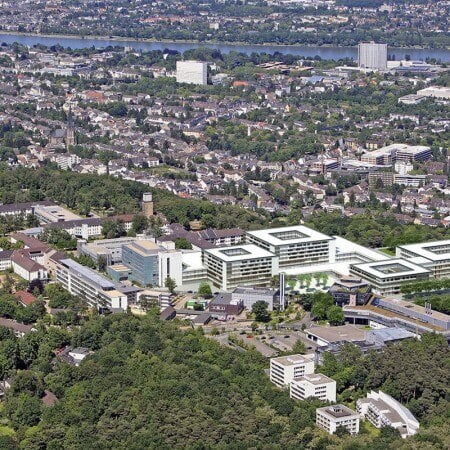
Department of Cardiology, Angiology and Pulmonology
The Department of Cardiology, Angiology and Pulmonology offers the full range of diagnostics and treatment of all diseases of the cardiovascular system, lungs and bronchi, as well as veins and arteries, both on an outpatient and inpatient basis. The department specializes in the treatment of coronary heart disease, heart valve diseases, heart arrhythmias, congenital and acquired heart defects, as well as of inflammatory cardiovascular diseases.
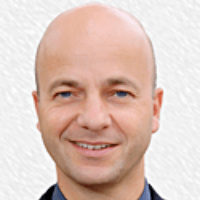




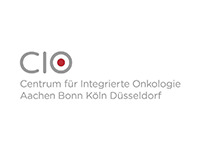

Department of Cardiology, Angiology and Internal Intensive Care
The Department of Cardiology, Angiology and Internal Intensive Care offers the full range of diagnostic examinations and innovative treatment methods in the field of interventional cardiology, cardiological electrophysiology, angiology and internal intensive care. The treatment is provided in close cooperation with the Department of Cardiothoracic Surgery, whereas particularly complex clinical cases are discussed at weekly interdisciplinary consultations, after which an individual treatment regimen is developed. An experienced and motivated team of doctors, nurses and technical staff of the department makes every effort to provide the best possible medical care.





Tricuspid valve stenosis is the rarest valvular heart disease. Most hospitals treat tricuspid valve stenosis with heart valve repair using open surgical techniques. However, there is also an alternative treatment option, namely minimally invasive balloon valvuloplasty. This treatment method is available at the leading hospitals abroad. The procedure is safely performed even on high-risk surgical patients. You are welcome to visit the Booking Health website to find the cost of treatment at foreign hospitals and select a medical care program.
Content
- What is tricuspid valve stenosis and how can it be treated?
- What is balloon dilatation?
- When can doctors use balloon dilation?
- Advantages and disadvantages of balloon dilatation
- Balloon dilatation of the bioprosthesis
- What hospitals specialize in balloon dilatation?
What is tricuspid valve stenosis and how can it be treated?
The right side of the heart has an orifice that connects the atrium to the ventricle. Blood should move through this orifice in one direction only, namely from the atrium to the ventricle. To prevent it from returning, the tricuspid valve is located in this place. It closes during the period of ventricular contraction so that the heart ejects blood into the blood vessels of the pulmonary circulation but not back into the right atrium.
This heart valve can be damaged by a pathological process, most often due to rheumatism. If the heart valve leaflets fuse together, the orifice becomes too narrow, and this condition is called stenosis. It can often be combined with valvular insufficiency, a condition in which the leaflets do not completely close the orifice, and part of the blood returns back to the right atrium when the ventricle contracts.
Tricuspid valve stenosis does not cause any symptoms in its early stages, so no treatment is provided. However, a patient is under medical supervision. If the heart defect progresses during life, surgery may be required. Indications for treatment are as follows:
- highly severe defect;
- moderately severe defect with manifested symptoms, heart arrhythmias, and progressive changes in the structure of the right chambers of the heart;
- moderately severe stenosis, if surgical treatment of other heart defects is planned.
Treatment options for tricuspid valve diseases at hospitals abroad include:
- reconstruction that involves the patient's heart valve repair;
- replacement surgery that involves the implantation of a new artificial heart valve.
Doctors at hospitals abroad always prefer heart valve repair whenever possible. This treatment approach provides the best hemodynamic parameters. In addition, only biological prostheses can be placed in the position of the tricuspid valve due to a high risk of thrombosis, but they have a short service life.
There are several options for heart valve repair depending on the mechanism of the heart valve damage, the presence of only stenosis, or its combination with valvular insufficiency. Healthcare professionals at most hospitals perform operations using open techniques through an incision in the thorax. Doctors resort to balloon valvuloplasty less commonly. This is a minimally invasive procedure through an incision in the leg that is performed from inside the blood vessels. Although this manipulation can rarely be used, some specialized hospitals abroad have sufficient experience in its application.
What is balloon dilatation?
Tricuspid valve stenosis causes a narrowing of the orifice of this heart valve, which is usually dilated with open surgery. Doctors perform a commissurotomy, an operation in which the fused leaflets of the tricuspid valve are dissected. However, if open surgery is contraindicated for a person due to the presence of concomitant diseases and a high risk of severe complications, doctors resort to a minimally invasive procedure.
Balloon dilatation is performed through an incision in the leg, and some hospitals use an incision in the arm. Doctors deliver a balloon to the heart through the blood vessels under X-ray guidance. It is inserted into the narrowed atrioventricular orifice. Doctors then inject a balloon with a contrast-enhanced saline solution, which is visible on X-ray scans. The balloon gradually expands and separates the fused heart valve leaflets.
When can doctors use balloon dilation?
Doctors at hospitals abroad rarely use balloon dilatation for treating tricuspid valve stenosis. This treatment option may be considered in the following cases:
- valve anatomy that is appropriate for balloon valvuloplasty;
- a patient has no tricuspid valve insufficiency;
- a patient has no defects in other heart valves (isolated tricuspid stenosis).
These conditions are rarely combined. This is especially true for isolated lesions of the tricuspid valve. Basically, this heart disease has a rheumatic etiology, and in rheumatism, several heart valves are usually damaged at once, including the mitral and aortic ones. However, in some cases, these heart valves can also be repaired or replaced with a prosthesis using interventional procedures. For example, in the case of aortic valve stenosis, treatment abroad is often carried out with the help of transcatheter implantation. A percutaneous method can also repair mitral stenosis or insufficiency, but not all anatomical variants of the defect can be treated with such methods.
In addition, balloon dilatation can be performed in patients with contraindications to open surgery. Sometimes this is the only possible treatment option. In this case, it is performed, ignoring all the shortcomings.
Advantages and disadvantages of balloon dilatation
As a treatment method for tricuspid stenosis, balloon dilatation has several disadvantages as compared to open surgery. For this reason, the technique is not considered a first-line treatment option.
The main disadvantages of the procedure are as follows:
- a high risk of valvular insufficiency due to excessive enlargement of the heart valve orifice;
- poor results of the procedure with heart valve leaflet calcification;
- other manipulations to repair the heart valve (strengthen the fibrous ring, close heart valve defects with patches, etc.) can not be performed simultaneously;
- healthcare professionals do not have enough scientific data on the long-term results of the procedure since the world experience with its implementation is relatively small (tricuspid stenosis is very rare, and balloon dilatation is not the first-line treatment).
At the same time, the procedure has many advantages. It is less likely to cause complications as compared to open surgery. The manipulation is minimally traumatic, does not require any rehabilitation, and the duration of a hospital stay is minimal. The procedure can be safely performed even in those patients who, due to their poor health, have contraindications for open surgery.
Balloon dilatation of the bioprosthesis
Patients with tricuspid valve defects undergo not only operations and interventional procedures to repair them but also replacement surgery. Moreover, only biological prostheses can be implanted in the position of the tricuspid valve since the mechanical ones are associated with a high risk of blood clots, even when taking anticoagulants.
Biological prostheses on the right side of the heart serve longer than on the left one. However, sooner or later, they will be damaged, and one of the reasons for bioprosthesis dysfunction may be its stenosis.
The main treatment option for these patients is revision replacement surgery. Doctors perform surgery to implant a new heart valve.
This operation is, however, traumatic, and at the time of admission, many patients have weakened conditions and are not able to undergo open heart surgery. In this case, doctors may use balloon dilatation of an artificial tricuspid valve as a palliative procedure. This treatment approach does not provide any long-term therapeutic results due to the early repeated implant stenosis. However, balloon dilatation allows an improvement in hemodynamics for 4-6 months. During this time, doctors can stabilize the patient's condition and prepare him for open surgery, namely the revision replacement procedure.
What hospitals specialize in balloon dilatation?
You can undergo your treatment in Germany or at hospitals in other developed countries. You are welcome to visit the Booking Health website, which offers the best hospitals in the world and specifies the cost of treatment for heart valve defects in each of them. If you cannot decide on a choice, please leave your request on our website. The specialists from the Booking Health company will contact you by phone within the next few hours and help you to select a hospital in Germany that specializes in the treatment of heart valve disease and has vast experience in performing balloon dilatation for tricuspid valve stenosis.
There are a few reasons for you to undergo your treatment at hospitals in Germany or other developed countries:
- specialized hospitals have vast experience in treating tricuspid valve stenosis, which is a rare heart disease, so most doctors in the world do not often deal with its management;
- state-of-the-art equipment that is available at the hospitals allows specialists to carry out the interventional procedure efficiently and safely;
- there is a low risk of complications, including tricuspid valve insufficiency;
- a high rate of successful procedures;
- good long-term results;
- doctors at hospitals in Germany can repair several heart valve defects at once using interventional methods, for example, tricuspid valve balloon dilatation and transcatheter aortic valve implantation.
You can make your appointment for balloon valvuloplasty at hospitals in Germany through the Booking Health service. In this case, the cost of treatment will be lower and our specialists will fully arrange your trip to a hospital abroad.
Authors:
The article was edited by medical experts, board-certified doctors Dr. Nadezhda Ivanisova and Dr. Vadim Zhiliuk. For the treatment of the conditions referred to in the article, you must consult a doctor; the information in the article is not intended for self-medication!
Sources:
European Society of Cardiology